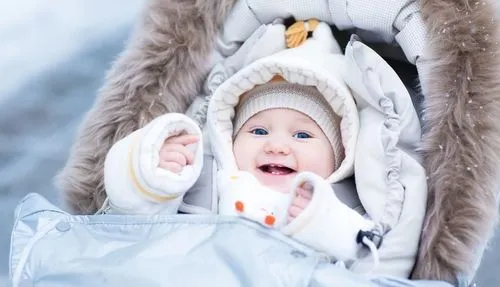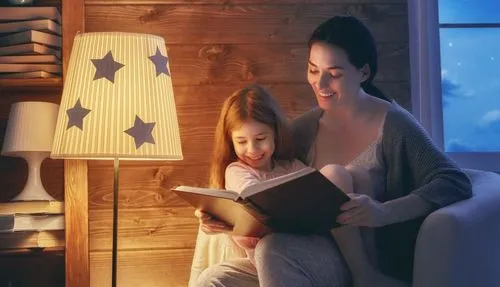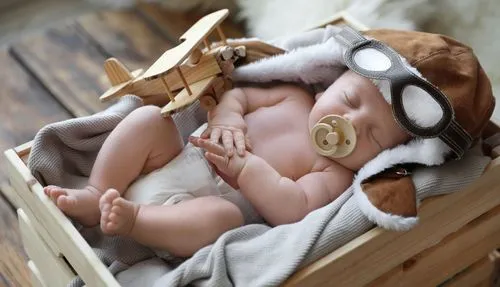Newborn baby essentials: what you really need and what you don't
March 14, 2023
Katka

If you're expecting a baby soon, you might be feeling overwhelmed by the amount of baby products on the market. How do you know what you really need and what you can skip? To help you out, we've compiled a newborn baby essential list based on expert advice and parent reviews. We've also included some nice-to-have items that can make your life easier and some don't-need items that you can save money on. You can make a newborn baby essential checklist based on this article and prepared all you need in advance.
Newborn baby must-haves
It can be challenging to determine the essential items your newborn will need and what you can skip. From diapers and clothing to car seats and cribs, this section will guide you in ensuring you have the essential items to keep your baby comfortable, safe, and well-cared for.
Diapers and wipes
You'll be changing your baby's diaper often, so it's essential to have plenty of diapers and wipes on hand. Consider buying a few different sizes since newborns grow quickly. Also do not buy large quantities, you do not know what diapers may suit your baby.Clothing
Newborns go through multiple clothing changes a day due to spit-up, diaper leaks, and other messes. Make sure you have enough onesies, sleepers, and socks to keep your baby comfortable and clean.Infant car seat
A car seat is essential for bringing your baby home from the hospital and for any car travel after that. Make sure the car seat meets safety standards and is installed correctly.Stroller or baby carrier
Both of these items are designed to help parents get around with their little ones, but they offer different benefits and may be better suited to different situations. A stroller is a great option for longer outings or when you need to carry more gear with you. On the other hand, a carrier can be a great option for shorter trips or when you need to navigate crowded spaces. They allow you to keep your baby close and hands-free, which can be particularly helpful for tasks like grocery shopping or running errands.Crib or bassinet
Your baby will need a safe place to sleep, whether it's a crib or a bassinet. Make sure the sleeping area is free of any potential hazards, such as loose blankets or stuffed animals.Baby monitor
A baby monitor can provide peace of mind when your baby is sleeping in another room. Consider a monitor with video capabilities so you can see and hear your baby. There is no need to buy expensive hardware baby monitors, just download the Bibino app and use two smartphones, tablets or computer to keep track of everything that rustles or moves.Thermometer
A thermometer can help you monitor your baby's temperature and determine if they have a fever.Baby bath supplies Bath time can be a fun bonding experience for you and your baby. Make sure you have a baby bathtub, baby soap, and a soft washcloth to keep your baby clean.
Burp cloths and bibs
Newborns can be messy eaters, so make sure you have plenty of burp cloths and bibs on hand to clean up any spills.Nail clippers or nail scissors
Nail clippers or scissors for newborn babies are important because babies' nails can grow quickly and become quite sharp. These sharp nails can accidentally scratch their delicate skin, leading to discomfort and potential infections. Trimming your baby's nails regularly can prevent these issues and keep them more comfortable.

What is nice to have
While the essentials are crucial, having a few additional items can enhance your daily routines with your newborn. In this section, we present a list of nice-to-have items that can make your life easier as you navigate parenthood. From swaddle blankets for a secure and calm environment to a diaper bag for convenient organization, these suggestions can provide added comfort and convenience for both you and your baby.
Swaddle blankets
Swaddling can help your baby feel secure and calm. Consider buying a few swaddle blankets to wrap your baby in.Changing table
While not essential, a changing table can provide a dedicated space for diaper changes and make it easier to organize diaper-changing supplies.Diaper bag
A diaper bag can keep all your baby's essentials organized and easily accessible while on the go.White noise machine
Some babies find white noise soothing and may sleep better with a white noise machine. Check two items off your list of must-have baby gear and use the Bibino app to monitor and play white noise at the same time.
What is not necessary
As you plan for your newborn's arrival, it's important to remember that not every item on the market is a necessity. In this section, we highlight items that may not be essential for your baby's well-being or your daily routines. By understanding what is not necessary, you can make informed choices, save money, and avoid cluttering your home with items you may not end up using. From expensive nursery furniture to designer baby clothes, this section helps you prioritize the items that truly matter for your baby's care and comfort.
Baby shoes
While baby shoes can be cute, they are not necessary until your baby is walking outside. For newborns and infants, socks or booties are sufficient to keep their feet warm.Diaper pail
While a diaper pail can be helpful for containing odors, it's not essential. You can use a regular trash can with a lid, or even disposable bags to dispose of dirty diapers. If you do choose to use a diaper pail, consider whether the added expense and maintenance are worth it for your family.Special detergents
While some parents may choose to use special detergents for washing baby clothes, it's not necessary for everyone. As long as you use a gentle detergent that is free of harsh chemicals and fragrances, you should be able to wash your baby's clothes along with the rest of your laundry. However, if your baby has particularly sensitive skin or allergies, you may want to use a specialized detergent.Baby room
While it's nice to have a designated baby room, it's not necessary for every family. If you have limited space or prefer to keep your baby in your room for the first few months, a separate baby room may not be practical. Additionally, newborns don't need a lot of space or stimulation, so a basic setup with a crib or bassinet, a dresser, and a few essentials like a changing pad and diaper storage can suffice. If you do choose to create a baby room, it's important to prioritize safety and functionality over aesthetics. Make sure that the room is free of any potential hazards like cords or loose objects, and that the crib and other furniture meet safety standards. Additionally, think about how the room will function in the long term, for example, will it be easy to access the closet or dresser as your baby grows and requires more clothes and storage?

Expensive nursery furniture
While it can be tempting to splurge on a fancy crib or changing table, your baby doesn't need top-of-the-line furniture to be comfortable. A safe, functional crib and a few basic items, like a dresser and changing pad, will suffice.Designer baby clothes
Babies grow quickly, and they will outgrow their clothes faster than you can imagine. Instead of spending a lot of money on designer outfits, focus on purchasing comfortable and practical items that your baby can wear every day.
Do not buy everything in advance
It's true that in today's world, there seems to be a shop or online retailer on every corner offering an endless array of baby products. While it's tempting to feel like you need to buy everything in advance, the truth is that you may not know exactly what you need until your baby arrives. This is particularly true when it comes to items related to feeding.
- Items related to feeding
Bottles, formula, breast pumps, and nursing bras and clothes, these things are expensive and you may or may not need them. While it's important to do your research and have a basic understanding of your options, it's also important to remember that every baby and every parent is unique. Some babies may take to breastfeeding easily, while others may need to use formula or a combination of both. Similarly, some parents may find a breast pump to be an essential tool, while others may not need one at all. By waiting until after your baby is born to make these purchases, you can save money and avoid cluttering your home with items you may not end up using.
Frequently asked question
1. How many diapers should I buy for a newborn baby?
It is recommended to have at least a few days' supply of diapers on hand. Since newborns grow quickly, it's best not to buy large quantities of one size in advance. Start with a small pack of newborn diapers and adjust as needed based on your baby's size and growth.
2. How often should I change my newborn baby's diaper?
Newborn babies typically need their diapers changed every two to three hours, or whenever they are wet or soiled. It's important to keep your baby clean and dry to prevent discomfort and diaper rash.
3. Can I use regular soap for my baby's bath?
It's best to use a mild, gentle baby soap or cleanser specifically designed for newborns. Regular soaps may contain harsh chemicals or fragrances that can be too harsh for a baby's delicate skin.
4. When should I start cutting my baby's nails?
Newborn babies' nails can grow quickly and may be sharp. It's generally recommended to start trimming your baby's nails when they become long enough to cause scratches or discomfort. Use special baby nail clippers or scissors designed for safe and precise trimming.
5. Do I need a separate room for my baby?
Having a separate baby room is a personal choice and not necessary for every family. You can keep your baby in your room for the first few months or create a designated space within your room. Safety and functionality should be prioritized, ensuring the sleeping area is free of hazards and meets safety standards.
6. How many swaddle blankets do I need?
It's recommended to have at least a few swaddle blankets on hand, as newborns often find swaddling comforting. Having a few allows for rotation when they need to be washed or if your baby prefers different types of swaddles.
7. Can I use a regular trash can instead of a diaper pail?
Yes, using a regular trash can with a lid or disposable bags is a cost-effective alternative to a diaper pail. It can effectively contain odors if emptied regularly. However, if you prefer the convenience and features of a diaper pail, you can consider purchasing one.
8. When should I buy items related to feeding, such as bottles and breast pumps?
It's advisable to wait until after your baby is born to assess your specific feeding needs. Some babies may breastfeed exclusively, while others may require formula or a combination of both. By waiting, you can better determine which feeding items are necessary for you and your baby.
9. How do I determine which baby products are essential for me?
Consider your lifestyle, budget, and personal preferences when deciding which baby products to purchase. Do your own research, seek expert advice, and learn from other parents' experiences, but ultimately make informed decisions based on what suits your unique situation. Remember, you can always purchase additional items later if needed.
Conclusion
Rather than feeling like you need to buy everything someone else found useful, take the time to do your own research and make informed decisions based on your unique situation. Consider factors such as your lifestyle, budget, and personal preferences when deciding which baby products to purchase. And remember, if you do find that you need something later on, you can always buy it then.
Continue reading...
Show all articlesCopyright & trademark notices
Apple, the Apple logo, and iPhone are trademarks of Apple Inc., registered in the U.S. and other countries and regions. App Store is a service mark of Apple Inc. Mac App Store is a service mark of Apple Inc. Google Play and the Google Play logo are trademarks of Google LLC. Windows® and the Windows logo are either registered trademarks or trademarks of Microsoft Corporation in the United States and/or other countries. Linux® is the registered trademark of Linus Torvalds in the U.S. and other countries.


